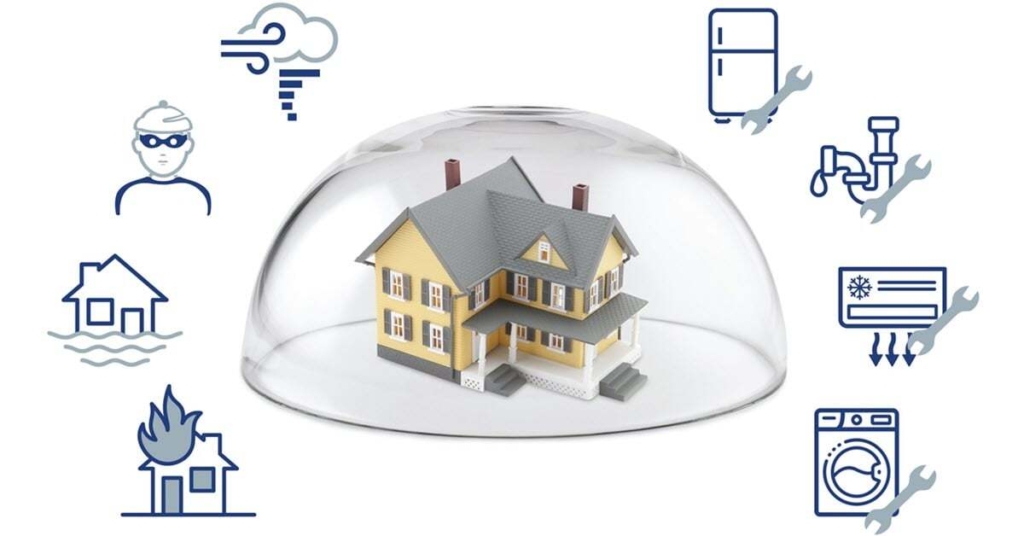There are many factors that affect the cost of home insurance. These factors include historical claims data and weather conditions. For example, a home located in an area that is prone to floods will cost more to insure. Another factor is the crime rate of a certain area. A home that is located on the oceanfront will also cost more to insure.
Basic coverages

While there are many types of home insurance policies, there are some basic coverages that are important to consider. Your home is likely your largest financial asset, and replacing it out of pocket is probably not an option for most people. In such a situation, homeowners insurance will protect you from the financial strain and maximize your savings.
Your policy should cover your personal belongings as well as other structures. In the event of a covered loss, you will be reimbursed for costs for hotel rooms, meals at restaurants, and other living expenses while your home is uninhabitable. If your home is destroyed, you can even get a temporary rental if you need it.
Homeowners insurance can also pay for injuries that happen on your property or outside of it. The coverage you purchase can vary based on the type of loss that happened. Most policies cover fire and lightning as the most common perils, but you can also choose specific perils you want covered. For example, you can choose to get coverage for riots, earthquakes, and windstorms. Other coverages may be available to protect your home against theft, vandalism, and more.
Another important aspect of home insurance is the coverage limit. The policy limits determine how much you can get for the costs of rebuilding your home. The policy limit should be high enough to cover the cost of rebuilding your home at today’s labor and material costs. Of course, it’s also important to understand that the price of rebuilding a home may differ from its market value.
Besides the basics, you should look for the kind of home insurance that gives you peace of mind. Make sure the coverage is sufficient to protect you against any eventuality. It is also important to get advice from an insurance agent. An insurance agent should be responsive to your needs and advise you in a manner that is respectful. And remember that your insurance agent is always by your side if you need to file a claim.
The insurance company’s Conditions section should contain details on what each party is responsible for in the event of a loss. It also details the procedures the insurer will follow if a loss occurs.
Premiums
Home insurance premiums are dependent on many factors, including the deductible and the type of coverage. Generally, the higher the deductible, the lower the home insurance premium. However, this will come with a price – a high deductible means you will have to pay out of pocket if you need to make a claim. The average deductible is $1,000, but you can reduce this amount to lower the premiums.
Another factor contributing to premium inflation is the high cost of settling natural disasters. Last year, 18 different natural disasters caused more than $1 billion in damage. Further, research indicates that more extreme weather events will occur in 2022. A United Nations report forecasts more intense rainfall and continued sea level rise. Additionally, higher repair costs contribute to higher premiums.
Another factor that can affect home insurance premiums is location. In the United States, every region has different risks, and a higher risk can translate into a higher premium. ZIP codes and street numbers are also factors. To get the best rate for your home insurance, talk to an insurance agent or property insurer in your area to see if any of these factors affect the price you pay.
Premiums for home insurance are also determined by the amount of coverage. Generally, the premium will be less expensive if you pay the premium in full. However, if you make many claims, your premium will be increased. In addition, some insurers charge interest on a policy if it is spread out over several months.
Another factor that affects the price of home insurance is the homeowner’s credit score. A low credit score can result in an increase in the premium amount, so it’s important to review your credit report before you buy home insurance. Furthermore, you should correct any mistakes you find in your credit report as early as possible. You can obtain a copy of your credit report once every twelve months.
In addition to maintaining good credit, you can also take steps to reduce your home insurance premiums. One way to lower your premiums is to bundle all of your insurance policies and pay for them all at once. Also, by installing burglar alarms, you can demonstrate that you take your home security seriously. Moreover, avoiding small claims can also lower your premiums.
Discounts
There are many different discounts on home insurance. Some insurance companies offer discounts for multiple policies. You can save anywhere from 5% to 20% by combining policies. You can also take advantage of discounts that apply to new homes. Check the website of the company you’re considering to see what discounts they offer. There are many different discounts to consider, so make sure to compare them.
A homeowner who is making home improvements to make it safer can also get discounts for doing so. This is because a safer home means fewer claims for insurance companies. A homeowner who makes a lot of safety improvements in their home can save up to 20%. Keeping your home well maintained and clean can also reduce your insurance premiums.
Homeowners can also take advantage of discounts by installing smart home technology. For example, installing a smoke alarm on each floor of the house could save them money. Likewise, installing sprinkler systems can save homeowners money on premiums. Several insurers offer discounts for these smart home technologies. These devices can monitor the temperature of a home, detect water leaks, and even alert homeowners of electrical problems.
If you’re a senior citizen, you may be eligible for 10 percent lower premiums. In addition, seniors can take advantage of group insurance discounts. Getting insurance through an employer could also help you save money. Also, if you’ve had the same policy with a company for several years, you might be able to negotiate a better premium. Many insurers will reduce your premiums by 5 percent if you’ve been a customer for three to five years.
Homeowners who install automatic leak detection systems can also qualify for discounts. These devices can detect water and gas leaks in hard-to-reach areas. These leaks can cause expensive insurance claims, so installing an automatic system to detect them can save you money. These systems are becoming more popular among homeowners.
You can also look for discounts for home insurance based on your credit score. Many insurers use a credit score to predict whether a consumer will file a claim. However, some states have limited the use of credit scores in this way, so you may need to take steps to improve your credit. Keeping your bills on time, avoiding debt, and keeping your credit card balance low can all help to improve your credit score. Having a good credit score can make a huge difference in the amount you pay for home insurance.
Renewability
Renewability of home insurance is a benefit of an insurance policy. It means that the insurer will continue to provide coverage as long as you keep paying your premiums. However, there are some conditions that may prevent you from getting a renewal of your insurance policy, such as your health. If you have had an accident or are ill, your premiums may rise.
In addition to the standard home insurance coverage, some policies offer additional benefits that can help you save money. For example, Hartford’s Vegetative Roofing benefit can provide up to $10,000 of replacement cost if your roof is ruined by hail or fire. Other policies, such as the Hartford Renewable Energy Equipment Choice insurance policy, offer optional “green” upgrade equipment replacement benefits. The “green” upgrade equipment replacement benefit pays up to 25% of the adjusted loss for replacement using environmentally friendly materials.
A conditionally renewable insurance policy can be beneficial if you know the insurer will not raise premiums or decrease benefits. This type of policy is best suited to those who do not like to change their mind frequently. Those who want to stay with their current policy can opt for a guaranteed renewable policy, which offers double the assurance of re-insurability. It also ensures that you’ll have the same coverage until you reach 65 years of age.
A renewable term life insurance policy is ideal for individuals who want to extend their coverage without going through a medical exam. This type of policy usually has higher premiums than other types of policies, but if you are in good health, the premiums may be lowered. This option is also beneficial if you don’t want to renew your coverage for another year.
Understanding Your Home Insurance Policy



